

Let me expose the insider trade secrets, give you the ISO 27001 templates that will save you hours of your life and showing you exactly what you need to do to satisfy it for ISO 27001 certification.
I show you exactly what changed in the ISO 27001:2022 update.
I am Stuart Barker the ISO 27001 Ninja and this is the ultimate guide to the ISO 27001 Security Awareness Training Policy.
The purpose of the ISO 27001 Security Awareness Training Policy is to ensure all employees receive appropriate awareness education and training in all aspects of information security. It ensures that they get regular updates in policies and procedures that are relevant to their role.
Consequently putting in place a security awareness training program is one of the easiest and most important things that you can do.
Indeed, there are many providers of training software to choose from that can help you.
The information security training and awareness policy covers:
Wish there was a quicker way to complete your ISO 27001 Security Awareness Training Policy? There is.In fact, I’ve written it for you. (Thank me later!) Save yourself 8 hours of work …
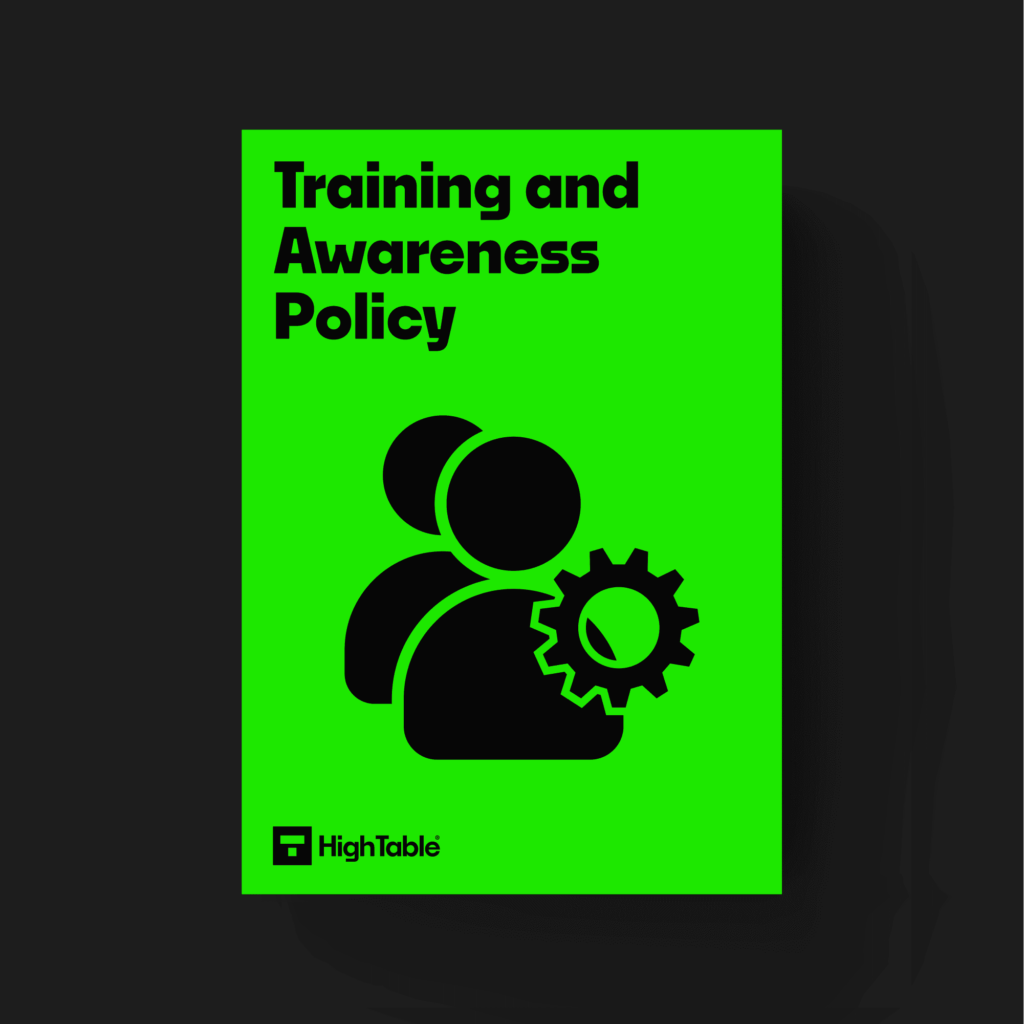
What is the biggest security risk? When asked most people will answer that it is people.
It isn’t people’s fault as people are busy.
Above all we want to do the best job that we can do.
As a result sometimes doing the best job we can do means cutting a few corners.
We need to make people aware of the security risks in our organisation to better inform them. This will reduce risk and help them make the right decisions. As a result we want to formally train them with an information security overview and data protection training.
You cannot expect to achieve ISO 27001 certification without having staff who are part of that process.
In the Essential Guide to ISO 27001 7.2 Competence we took a deep dive into the requirements for training as part of demonstrating competence. In summary:
The organisation shall:
a) determine the necessary competence of person(s) doing work under its control that affects its information security performance;
b) ensure that these persons are competent on the basis of appropriate education, training, or experience;
c) where applicable, take actions to acquire the necessary competence, and evaluate the effectiveness of the actions taken; and
d) retain appropriate documented information as evidence of competence.
In the Essential Guide to ISO 27001 7.3 Awareness we took a deep dive into what the actual requirement of the ISO 27001 standard is and how to comply with it. In summary the ISO 27001 standard states:
Persons doing work under the organisation’s control shall be aware of:
a) the information security policy;
b) their contribution to the effectiveness of the information security management system, including the benefits of improved information security performance; and
c) the implications of not conforming with the information security management system requirements.
The updated control for Information Security training is now ISO 27001 Annex A 6.3 Information Security Awareness, Education and Training. The following is an extract:
Personnel of the organisation and relevant interested parties should receive appropriate information security awareness, education and training and regular updates of the organisation’s information security policy, topic-specific policies and procedures, as relevant for their job function.
You will often hear the term ‘information security culture’ or having a ‘culture of information security’.
On the whole this just means having an awareness of the risks that are out there and what simple measures you can do to protect yourself.
The policy is the company’s statement about what it is doing about training with the result that it can demonstrate that it is taking it seriously.
ISO 27001 Policies are statements of intent that describe what we do but not how we do it. If people want us to demonstrate what we are doing to ensure our staff are trained then they would look to this policy.
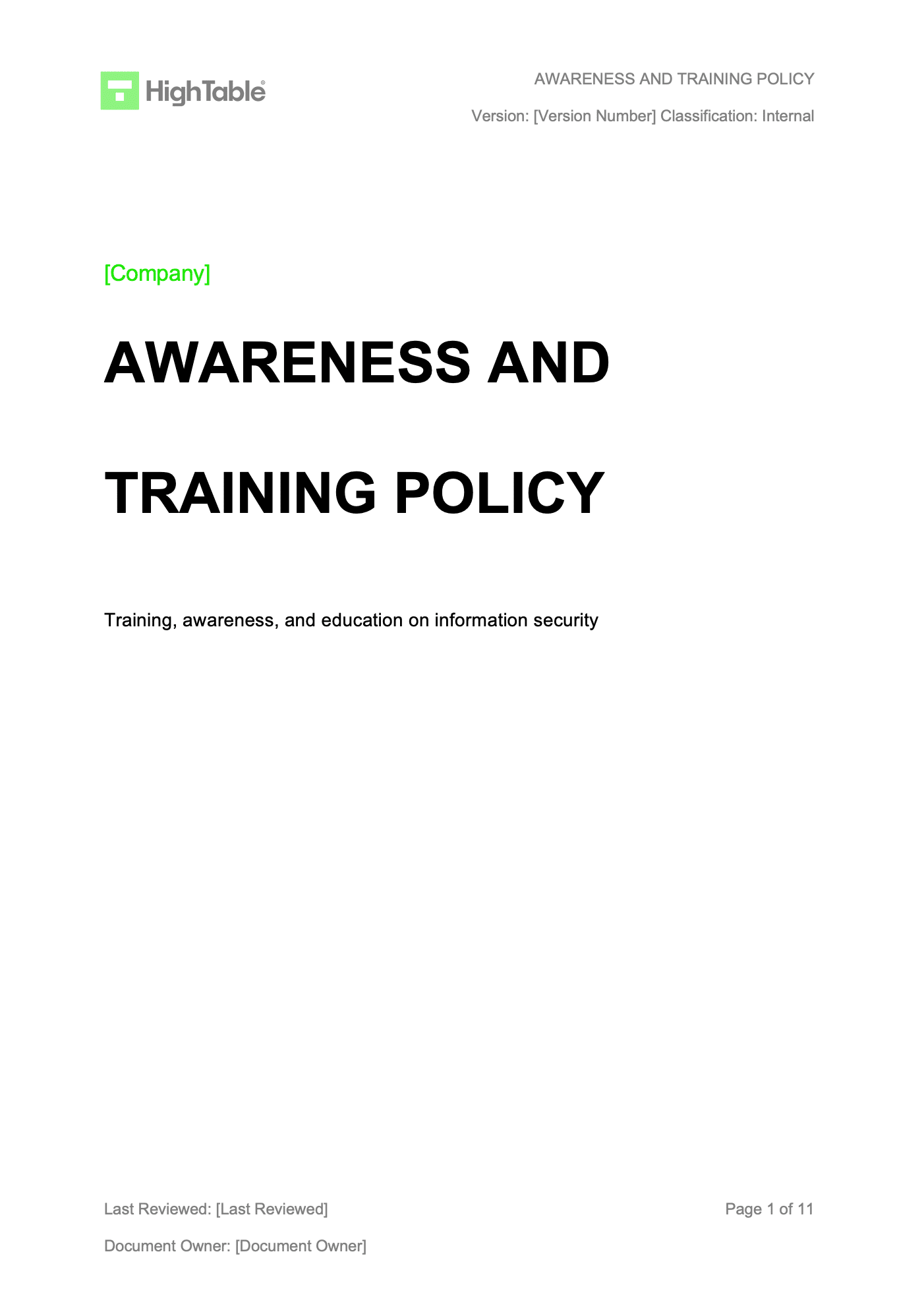
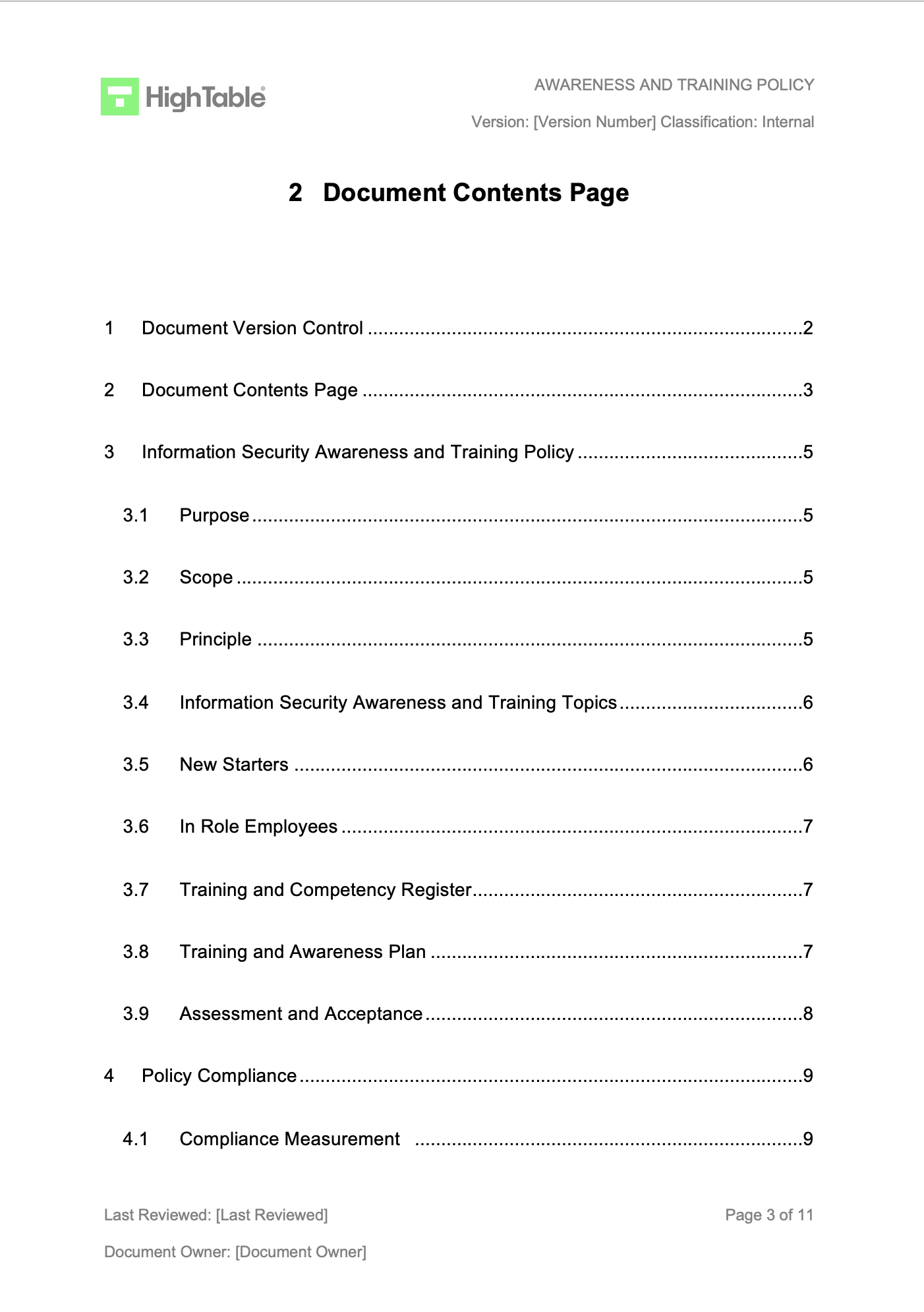
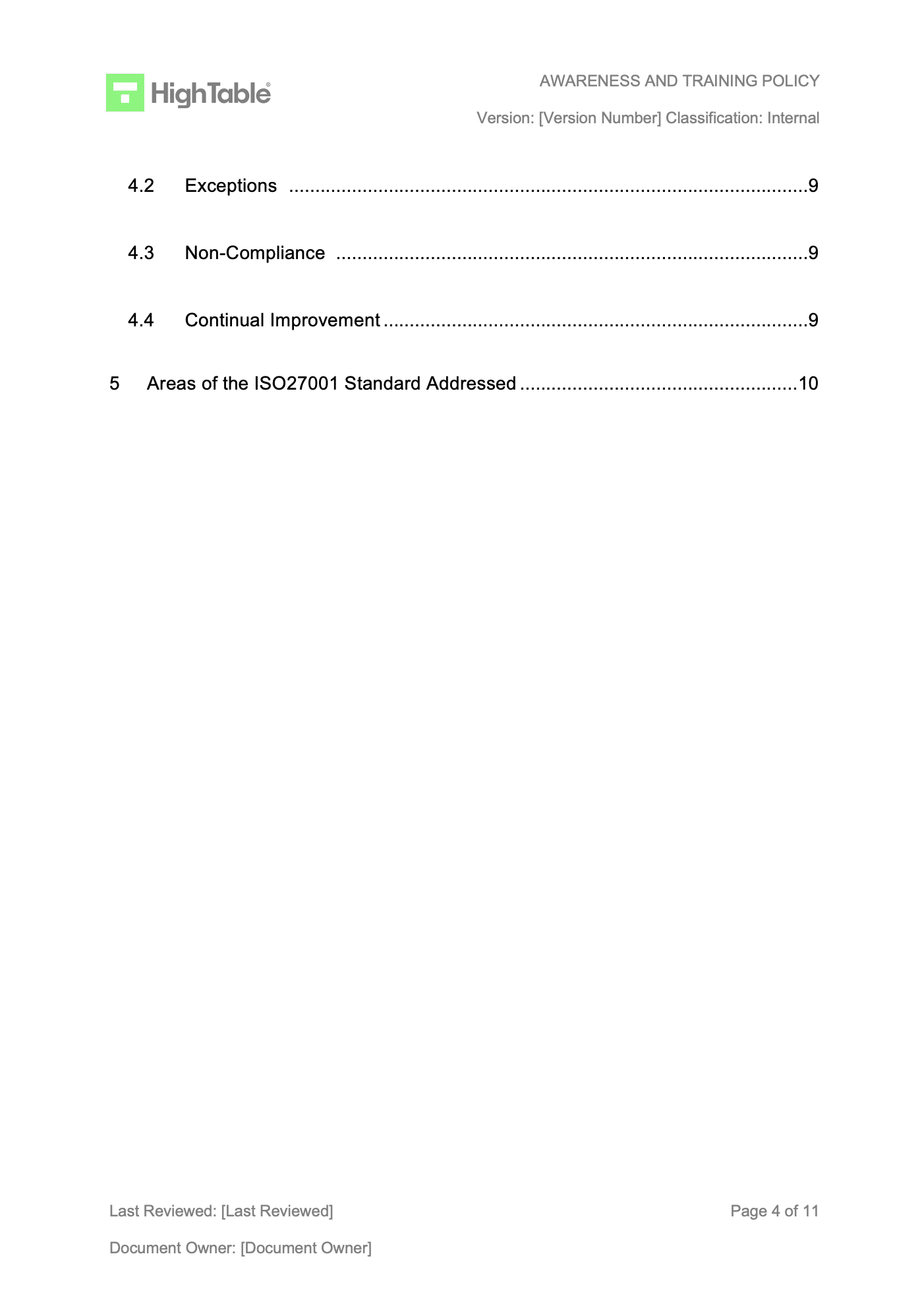
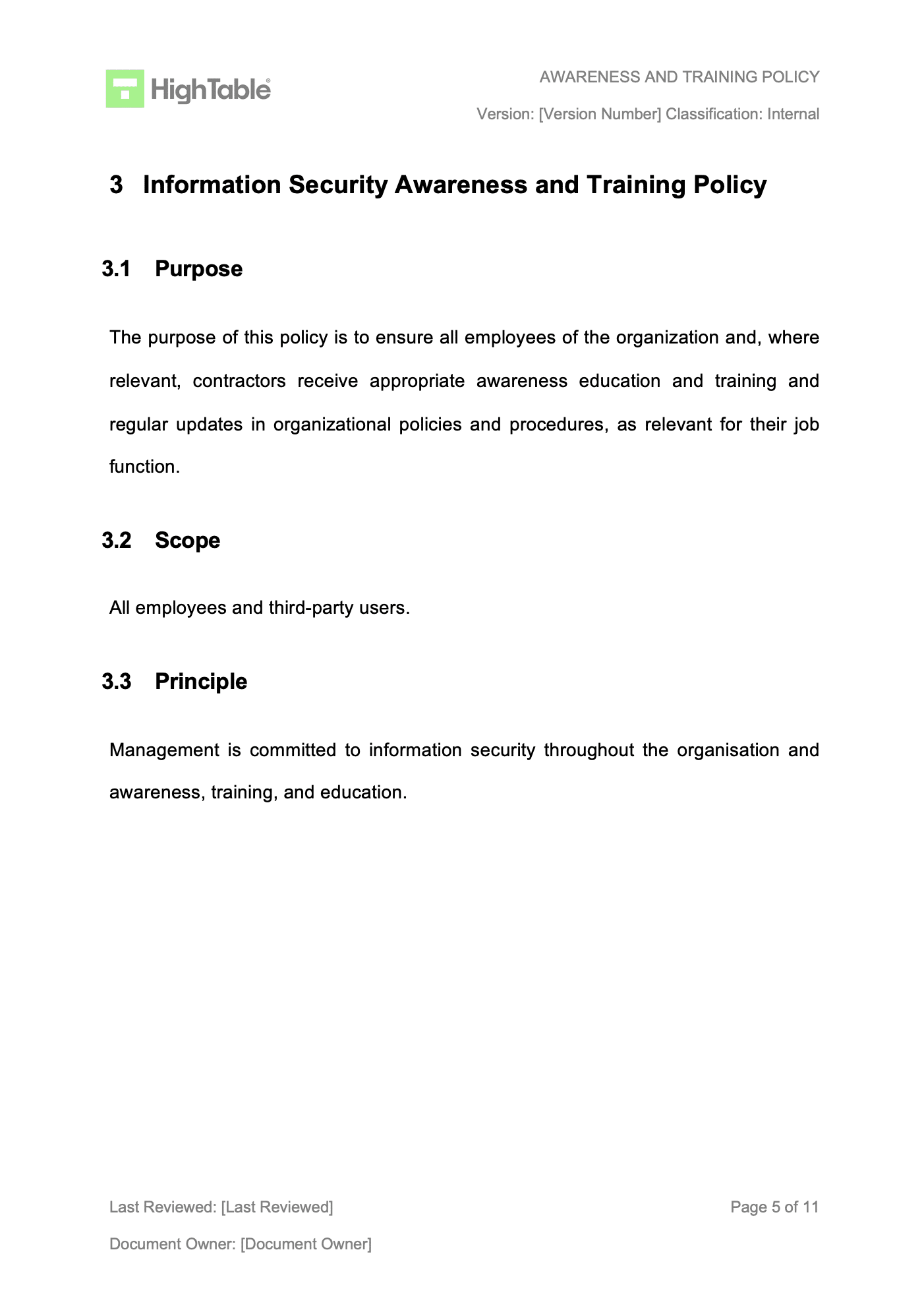
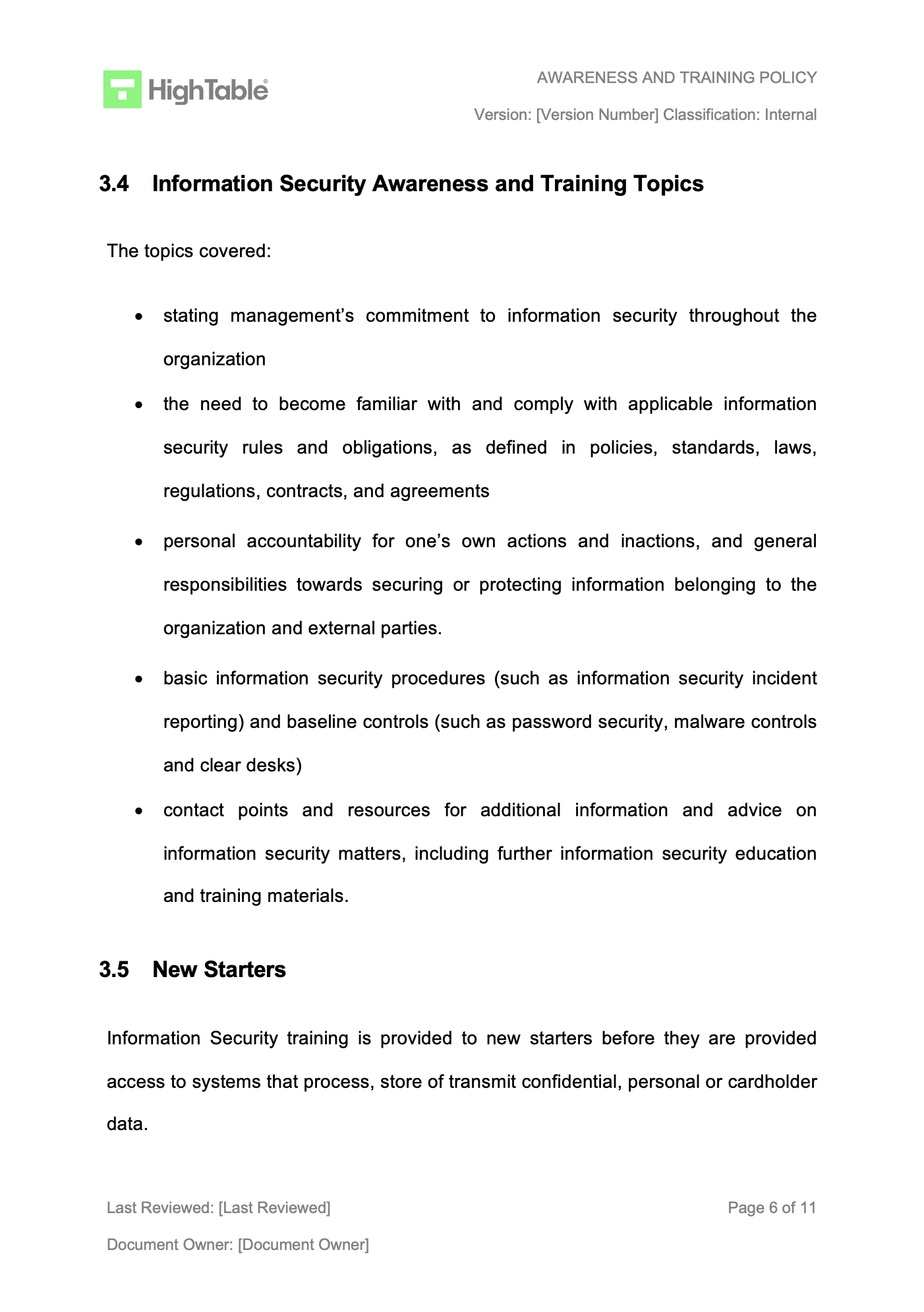
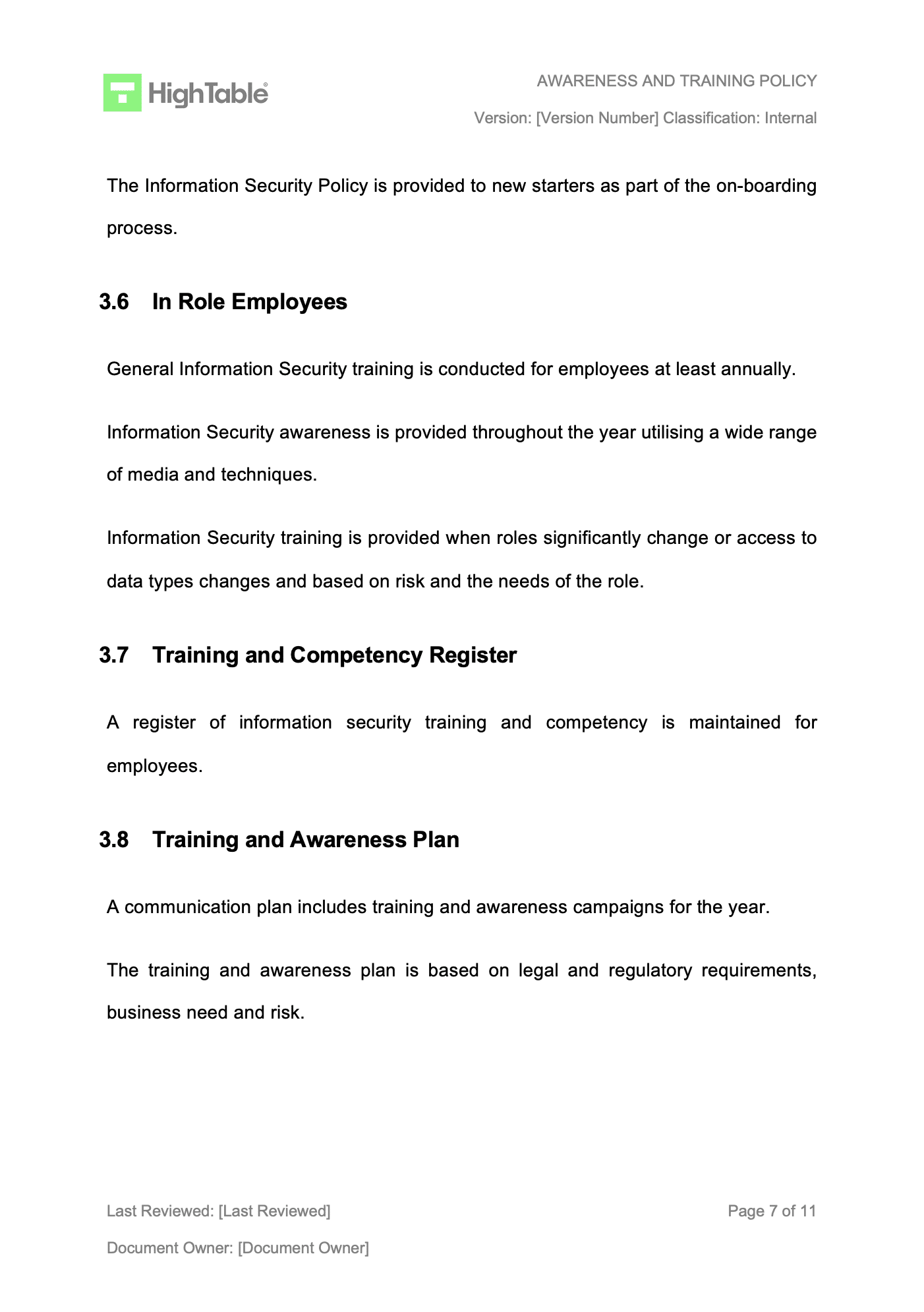
It is straightforward to write the policy yourself. As a result make sure to include the following points and topics:
ISO 27001 documents require version control of the author, the change, the date and the version as well as document mark up such as document classification.
The purpose of the Information Security Awareness Training policy is to protect against loss of data.
It should really apply to all employees and third party staff working for your company.
The principle of the Information Security Awareness Training policy is the confidentiality, integrity and availability of data. Accordingly it is about the security and protection of confidential data.
Write a statement that lists out the topics that your plan will cover. Particularly phishing, general security awareness, data protection are all good base topics to include.
New starters to the organisation will need training so set out on what and when.
Training is not a one and done so the Information Security Awareness Training policy will cover continual training and annual reacknowledgment.
The standard and best practice require us to understand the competency of staff in relation to information security and any training requirements. Therefore implement a Competency Matrix.
To be effective it is best to plan training throughout the year and follow the plan.
It is not enough to send out training, we also need to ensure people have understood it and accepted it.
Provide for how compliance to the policy will be achieved.
When it comes to implementing effective ISO 27001 training and awareness the following is considered best practice.
You need an information security and awareness training policy that is based on the needs of the business, the risks that the business faces and that fully satisfies the requirements of ISO 27001 and ISO 27002. The quickest way is to download the Training and Awareness Policy Template.
The policy should be reviewed and approved by senior management to ensure there is full buy in and to make the policy as effective as possible. If you are doing an ISO 27001 implementation then the management review team will sign off the the policy.
A policy is a statement of what you do for information security and what is expected. If you do not communicate then people cannot be expect to know what is expected of them. How you communicate is down the to the culture and communication style of the organisation but getting approval from each person that they have read it, understand it and accept it is a key step. Be sure to update your communication plan so that it forms and appropriate part of your on going communicate.
A communication plan is plan for the year that covers
As above, the Information Security Awareness Training Policy is part of that plan but it goes wider. Based on the risks to the business and the needs of the business there are other communications that should be factored in that implement further training and further awareness. You will want to communicate on topics such as data protection, you will want to have regular management review meetings, you may have security operational meetings. Specific topics such as phishing attacks, backups, anti virus may all require their own communication. Consider what is important, what is a risk and let people know about it.
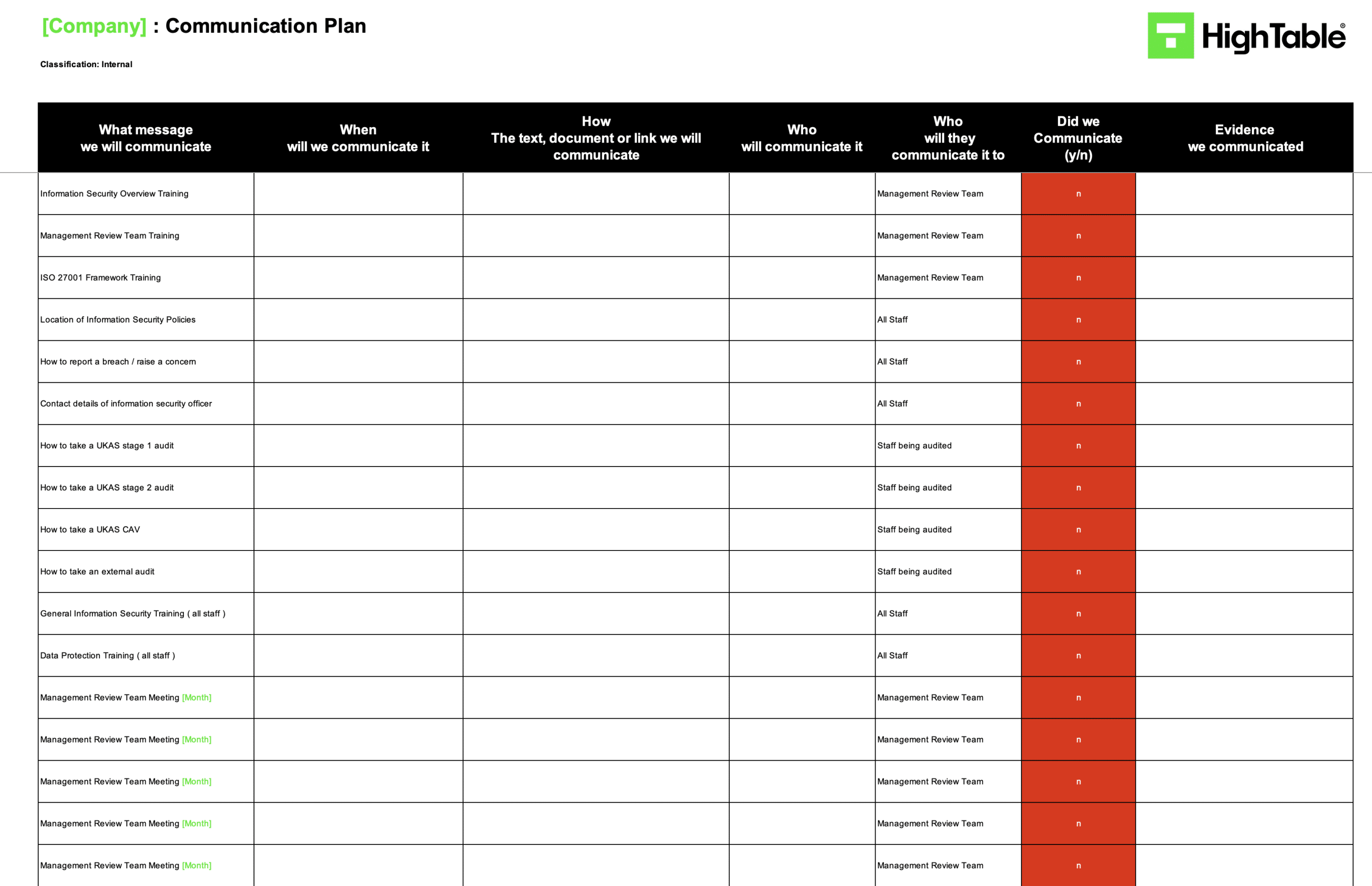
This is one of the few areas where a tool is highly recommended. You have to implement specific training throughout the year on information security and data protection. Part of that training is to ensure that people understand what they have been trained in and keeping a record that the training took place. It can be done manually, but tools are designed to take care of this for you. They often come with prebuilt modules and content so you don’t have to worry about it and they automate the process of getting people training, getting the confirmation of understanding via quizzes and tests and they include valuable reporting so you can track who has and who has not completed the training.
Information security awareness covers communicating a basic understanding of information security issues, risks and threats. Markedly it is a more formal structured approach for staff. That is to say that it follows allocated and dedicated time to train on an aspect of information security with a test at the end to verify understanding. Additionally it covers the security measures that you are taking as well as the threats those measures address.
Does information security training include a test?As rule yes because a test is a way for the trainer to verify that the training was affective and a basic level of understanding has been reached.
Why do we do information security training tests?There are 2 reasons. Firstly to show that you have the required level of understanding as a result of the training materials. Secondly so that the company can evidence that it provided you with training and that you took it.
How often is information security training taken?At least once in every 12 months as a minimum. So information security training modules are taken on an annual basis. In addition these are supplemented with training modules that are specific to your organisation and the risks it faces. Subsequently it is not unusual for these to include modules such as Phishing, Data Protection and more.
Where do I get an information security awareness and training policy? How often must you retake information security training?When starting with an organisation and at least every 12 months.
How do you demonstrate security awareness?By having a communication plan and communication record for information security. Likewise by having a formal training plan with training records. Additionally you can consider a controlled phishing training campaign.
Where can I get an Information Security Training Policy Example PDF?A great sample of the Information Security Training Policy can be download from High Table: The ISO 27001 Company.
What is the purpose of security training?The purpose of security training is to make people aware of the the security threats that they face and what to do about them. The more informed that people are the more likely they are to be able to keep themselves and company data safe.
Why is information security training important?The world can be a very bad place and people want what you have. Generally there are times you aren’t aware that what you have has any value. Nonetheless to protect what is important to us, our data, our company data and our finances it is important that we are aware of the risks we face so we can make informed choices about addressing them.
Does information security training UK differ to information security training USA or information security training Australia?
No, the principles are the same and the threats are the same. Given these points there may be slight differences in legal implementations and laws but the basics of training are consistent across the globe.